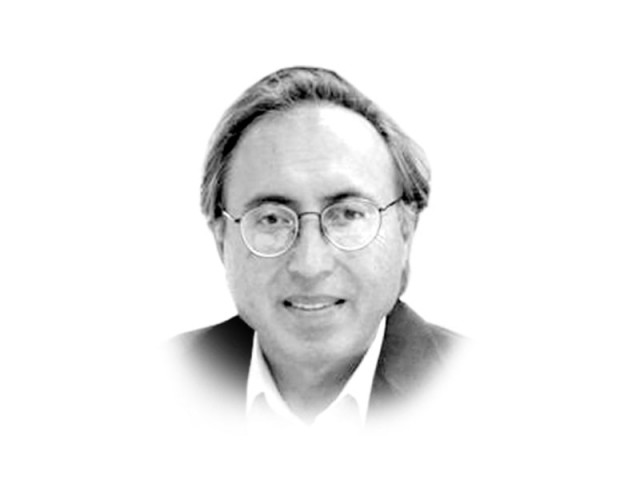Democracy — the only road to be on
Democracy, the only solution, comes in stages and through struggles, and never offered on a platter or as a gift.

Democracy — the only road to be on
Exposing their hypocrisy can be the first step towards building our democratic future. The bigger challenge, however, is how we can defeat their using use of democratic means — i.e., popular support — to betray the popular mandate. Let us be clear, the popular mandate is not about acquiring power but rather about articulating the public good, securing rights and the defending lives and properties of citizens. Pick up a manifesto of any political party in the governing coalitions, and one will will see these grand objectives emphasised over and over again. A mandate is not a right to rule but rather a social contract, a promise or commitment one makes when asking people to support one’s programmes and policies when running for election. Fair and free elections are a rarity in Pakistan, and so individuals, groups and parties have used violence, coercion, fraud, and money to procure popular support. The democratic means of achieving power, often claimed by victors of elections in Pakistan, may not stand the litmus test of being free, fair or untainted of corruption.
The same has been true of our four military dictators — all of whom vowed to build ‘genuine’ democracy, or create a social and economic base for it, while displacing the electoral elite. But what they did instead was to destroy each and every institution and norm that could make the democratic progress of Pakistan, smooth, sustainable and deep. The history of military dictators is characterised by deceit, institutional decay, political fragmentation, moral and social rot, (that produced polarisation), insurgencies and alliances of the state with violent ethnic and religious groups.
So, what is the alternative if we find ourselves between two options — military rule and ‘democratic’ demagogues misrepresenting democracy? The answer is that we must learn from our own experiences, a lot more than we learn from the struggles of other countries. Two lessons are important and must form the foundational ideas of our social and political thinking. One, there is no alternative to democracy. Second, that democracy comes in stages and through struggles — and never is it offered on a platter or as a gift.
How can we go about this struggle, which must be both through debating universal ideas and their relevance to our society and time (it also has to come through the concrete actions of members of civil society)? For this, we must educate our people and struggle harder than we have in the past. I am afraid, a diverse, plural, large and complex society like Pakistan cannot be governed peacefully without democracy — a democracy, which is not hijacked by demagogues, murderous violent groups that enter into political compacts or by those who have no respect for law, judiciary or accountability.
This raises a million-dollar question: how to get rid of those who have false representation and falsely represent democracy? I wish I had a simple answer. It has to be through persistent, patient work for civic education, support of judiciary, accountability and rule of law. The road to democracy is long and the journey can be tiring, but this the only road that leads to progress, stability and civilised governance.
Published in The Express Tribune, September 19th, 2011.















COMMENTS
Comments are moderated and generally will be posted if they are on-topic and not abusive.
For more information, please see our Comments FAQ